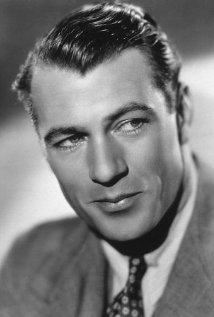Directed by Ernst
Lubitsch
Written by
Ben Hecht, Ernst Lubitsch
Based on the Play by Noel Coward
1933 - B&W - 91 minutes
CAST
Miriam Hopkins as Gilda Farrell
Fredric
March as Tom Chambers
Gary
Cooper as George Curtis
Edward Everett
Horton as Max Plunkett
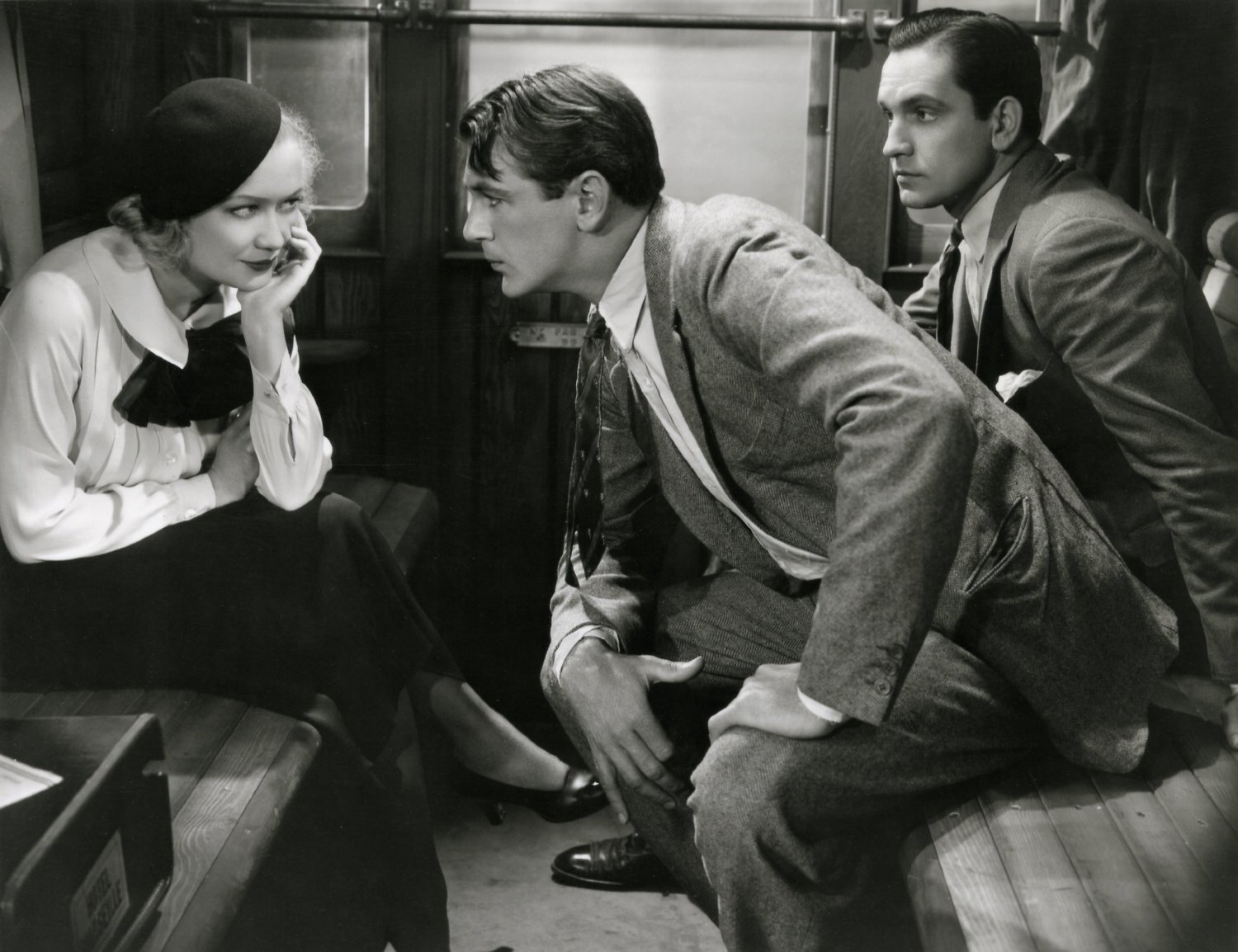
Based on a Noel Coward play, Design for Living has a wisecracking script from Ben Hecht and is directed by Ernst Lubitsch, the man who made last year’s top scoring film, To Be or Not to Be. But the story of this film also provides afascinating insight into the extraordinary history of Hollywood cinema in the first half of the 20th century.
On its initial release, Design for Living was loved by the audiences who first saw it, making it one of the top 10 grossing films in its year of release, but it was broadly rejected by critics and labelled a "lesser Lubitsch". Looking through the lens of time, we can reassess the key critical negatives and see the film in a new light.
First, the critics were aghast that Noel Coward's, undoubtedly witty, lines had been cast to the four winds and replaced by a wisecracking script from the pen of Ben Hecht. Second, they could not take seriously Gary Cooper in the role of a struggling artist in the Bohemian quarter of Paris between the wars, and his performance is referred to as "clunky.
But Lubitsch knew more about cinema and audiences than the critics and it was obvious to him that Coward's play would not work cinematically. The play opens with the characters and their various relationships already established, and the story of how they met and came to be where they are is revealed by the spoken dialogue, Lubitsch and Hecht realised this would require an overly complex flashback structure and decided on a complete rewrite, filling in the back story to show how the characters met in a coherent chronological time line. They also felt that Coward's lofty, urbane, sophisticated characters would not wash with cinema audiences during the Great Depression and decided to make the characters more naive and exuberant.
It works wonderfully; the opening scene of the film and the meeting of the protagonists is exquisite and audacious, and the film proceeds with deliciously mischievous aplomb.
Gary Cooper actually lends terrific vigour and naturalism to his role. He was a worldly actor fluent in French and this film gave him the rare opportunity to demonstrate his versatility and comic talent. He fits in perfectly with the intelligent and vivacious Miriam Hopkins and the versatile gadabout Fredric March, and the chemistry between this loony ensemble is perfect.
But to
compound the film's problems, as well as critical disapproval,
shortly after its initial release it received the unwelcome
attention of the sinisterly
named,
National League of Decency. The League of Decency was an
extreme, and extremely powerful, lobby group bent of rooting out
what they referred to as “The incalculable influence for evil
exerted by the motion picture screen". They turned their
baleful eye and influence on Design for Living
and, astonishingly, thanks to their efforts it was eventually
refused a certificate and banned.
Subsequently the film has been totally neglected, rarely screened and was never available for home viewing on any format, until its first appearance on DVD in 2005 as part of a collection of Gary Cooper's complete film catalogue. It finally appeared in its own right as a stand-alone DVD release in December 2011.
Hurst Village Cinema therefore if therefore offering a very rare treat, the chance to see this wonderfully witty comedy on the big screen and marvel at the crass stupidity which has denied people the chance to see it in intervening years.
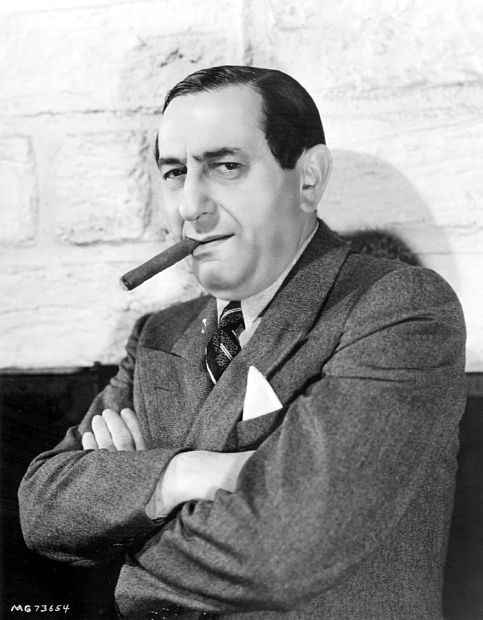
Ernst Lubitsch
Ernst Lubitsch (January 29, 1892 – November 30, 1947) was a Jewish, German/American actor, screenwriter, producer and film director.
Beginning in Berlin, directing a number of brilliant silent comedy classics, his skills were recognised in Hollywood and he emigrated to the USA in 1923 where he began to make a series of sophisticated films that subtly picked apart the American psyche. His urbane comedies of manners gave him the reputation of being Hollywood's most elegant and sophisticated director; as his prestige grew, his films were promoted as having "the Lubitsch touch."
In 1946, he received an Honorary Academy Award for his distinguished contributions to the art of the motion picture. He was also nominated three times for Best Director.
Gilda Farrell: Miriam Hopkins
Now largely forgotten, alas, Miriam
Hopkins (October 18, 1902 – October 9, 1972) was once the top
Paramount star with a penchant for playing intelligent and
liberated women. A favourite of Lubitsch, she appeared in three of
his films, she also starred in a number of major Hollywood films,
receiving an Oscar nomination in the title role of Becky
Sharp, an adaptation of Vanity Fair.
It is no surprise that the career of this highly intelligent, free spirted actor went into decline with the rise of a more morally censorious Hollywood, but it is a shame that the world first lost, then forgot about such a talented performer with such acute comic timing
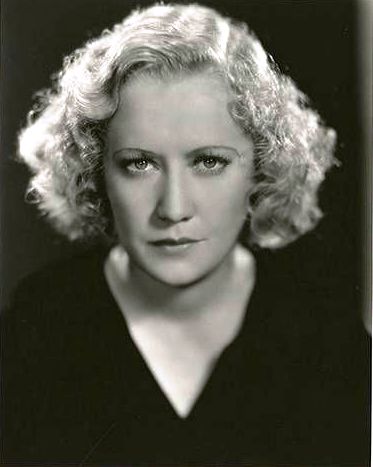
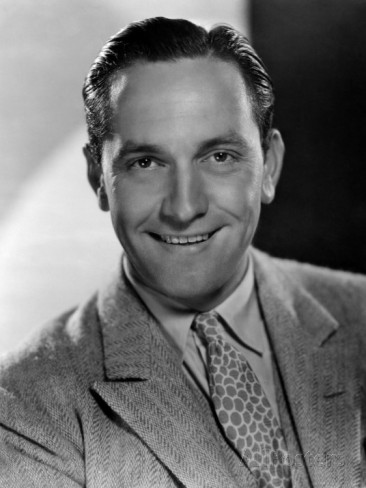
Tom Chambers: Fredric March
The only actor to hold both two Best
Actor Oscars, and two Tony Awards for Best Actor in a Play, Fredric
March (August 31, 1897 – April 14, 1975) was an extremely versatile
actor who could play both serious drama, and light
comedy.
Perhaps this versatility is hinted at by his two Oscar winning roles, the first of which came in the early horror film, Dr Jekyll and Mr Hyde, in which he also starred opposite Miriam Hopkins. The second Oscar came for his role in The Best Years of Our Lives, William Wyler's drama about servicemen's troubles adjusting to civilian life after the war. A lifelong Democcrat, in 1949 he was targeted for blacklisting by the House Un-American Activities Committee because of his supposed "lefist" politics.
George Curtis: Gary Cooper
Little needs to be said about the
career of Gary Cooper (May 7, 1901 – May 13, 1961) which started in
the days of silent films
in
1925, and continued until his death from cancer in 1961.
Starting as a stunt rider in 1925, Cooper’s pleasant drawl allowed him to seamlessly transition to sound pictures, unlike some of his more illustrious colleagues, and he became a major star with his first sound film, The Virginian. His career took off in a big way after 1936, when he appeared in a number of high profile “man of the people” style roles like Mr Deeds Goes to Town. In later years, he took on more individualistic roles, such as The Fountainhead. Nominated for five Oscars, he won two. In 1947 the testified in front of the House Un-American Activities Committee to give testimony on the alleged infiltration of Hollywood by communists.
